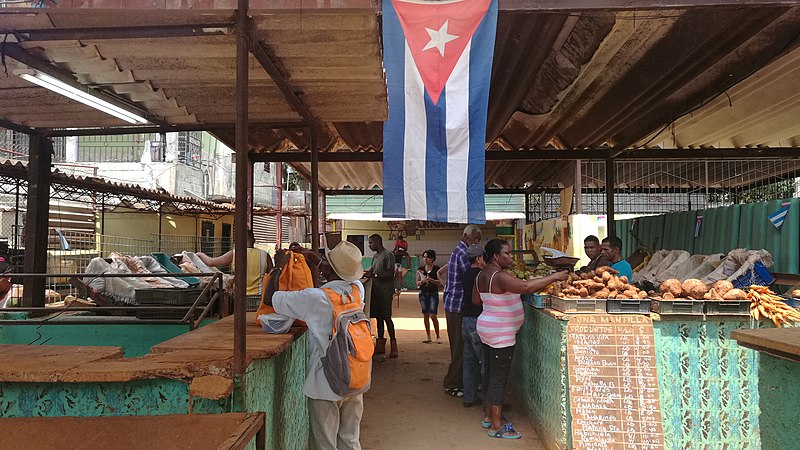Senators Ron Wyden (D-OR), Cynthia Lummis (R-WY) and Chris Van Hollen (D-MD) are urging President Biden to ease restrictions on Cuba that affect the island's private sector, according to
NBCNews. In a letter sent on Wednesday, lawmakers urged the president to boost economic exchanges between American and Cuban businesspeople by adopting "targeted, risk-based efforts, including strict changes to U.S. licenses and regulations." The objective would be to promote the growth of Cuba's small and medium-sized private companies, give them greater access to US financial services, and increase US exports to the island.
Easing trade and travel restrictions "would increase demand for U.S. commodities and make it easier for U.S. exporters to reach the Cuban market, benefiting American workers, farmers, ranchers and companies that make up the thriving U.S. export sector," they argued in the letter, first obtained by NBC News. Senators also said more trade and investment would provide a "counterweight" to China, "which has shown a growing interest in the island nation's finances."
The letter included recommendations on allowing transactions between US financial institutions and “civilian-run” Cuban banks; encouraged the government of Cuba to end the requirement that all US imports must go through government channels; as well as specific regulations or guidelines to support Internet access in Cuba.
Wyden, who chairs the Senate Finance Committee, met Cuban President Miguel Díaz-Canel during a trip to the island in December. After the meeting, he asked the Biden administration to normalize trade relations with Cuba and strengthen support for small and medium-sized businesses. Wyden had already introduced a bill to end the embargo and establish new business relationships. A small delegation of US lawmakers also traveled to Havana in November and met with senior Cuban government officials.
The letter sent on Wednesday (15) began by criticizing the US embargo on Cuba, saying that it “did not facilitate regime change, nor did it promote notable improvements in human rights, democracy or economic freedom in Cuba” and took away opportunities for companies and American farmers. Just this month, another bipartisan group of senators also introduced a bill to end the embargo.
But the US embargo can only be lifted by Congress, and lawmakers on both sides, including Cuban-American Senators Marco Rubio and Bob Menendez (who chairs the Senate Committee on Foreign Relations), resist the idea.
In 2021, Cuba lifted the ban on private companies that had existed since the late 1960s, when the government nationalized all companies and outlawed private ownership. The regulations in force provide greater legal certainty to small and medium-sized companies: companies with more than three employees can set up as “limited liability” companies, but continue to have limitations on the number of workers they can hire and the fields in which they can operate.
Most of Cuba's socialist-style economy was run by the government until the 1990s, when Fidel Castro allowed small businesses in a very limited number of areas to operate under heavy regulation. Easing business regulation is part of economic reforms under the leadership of President Miguel Díaz-Canel, in an attempt to improve conditions on the Island that was hit by a severe economic setback after the end of the USSR. The situation of high inflation and decades of US embargo led to shortages of food, medicine, fuel and, in some cases, energy throughout the island.
Large protests erupted in July 2021, leading to heavy repression. In fiscal 2022, a record number of people left Cuba, with more than 220,000 reaching the US-Mexico border. The senators' letter noted that supporting the private sector could reduce the number of Cubans seeking to migrate to the US "due to a lack of hope for a better future."
US engagement with Cuba, including negotiations on migration and law enforcement issues, has increased since late 2022. There has also been an increase in the number of cultural exchanges at the US Embassy in conjunction with the government of Cuba.
 Foto: RG72
Foto: RG72











